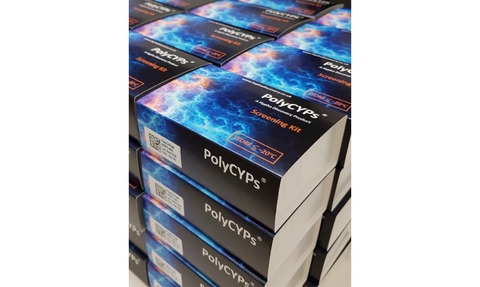
Hypha Discovery Limited has launched a line of PolyCYPs kits designed to provide scientists with scalable, easy-to-use, oxidative catalytic technology.
The platform is the vision of CSO Jonathan Steele who, together with fellow scientists at Hypha Discovery and Professor John Ward at University College London – supported by funding from Innovate UK – leveraged Hypha’s proven microbial biotransformation technology to create the PolyCYPs range.
It enables the synthesis of cytochrome P450 (CYP) derived human and other mammalian metabolites, as well as novel hydroxylated derivatives. The diverse enzymes in the kit have been cloned from a selection of Hypha’s most effective biotransforming strains and have been proven to catalyse a variety of oxidation reactions.
PolyCYPs kits are designed for two key applications. The kits synthesise CYP-derived metabolites of pharmaceutical drugs and agrochemical compounds to enable their identification and biological testing. In addition, they provide medicinal chemists with a tool to make arrays of polar derivatives in isolatable yields for identification and bioassay. The polar derivatives can have advantages such as improved drug distribution, metabolism and excretion properties, as well as increased solubility and potency, and could ultimately increase the number of viable new chemical entities in development pipelines.
Scalability is a key feature of PolyCYPs, with resupply of specific enzymes in the form of freeze-dried powders. Alternatively, outsourced screening and/or large scale production and purification is available at Hypha. The kits are provided in an easy-to-use format containing everything needed to conduct reactions – the user simply needs to add water.
Liam Evans, CEO of Hypha Discovery, said: “PolyCYPs is an exciting evolution of Hypha’s leading biotransformation expertise. Supplying our clients with the means to quickly produce metabolites that are otherwise difficult to identify and synthesise satisfies an unmet technical need. This cutting- edge product is the result of four years of collaboration with Professor John Ward of University College London to whom we are very grateful, as we are to Innovate UK for their significant financial support. We predict strong growth in sales of this product line based on the positive feedback from our customers.”



